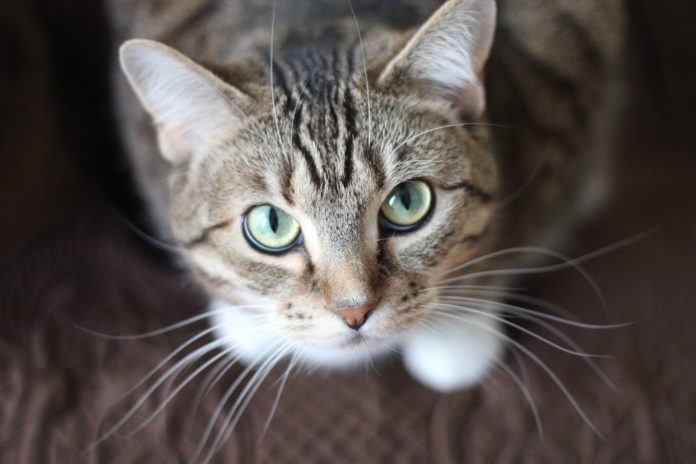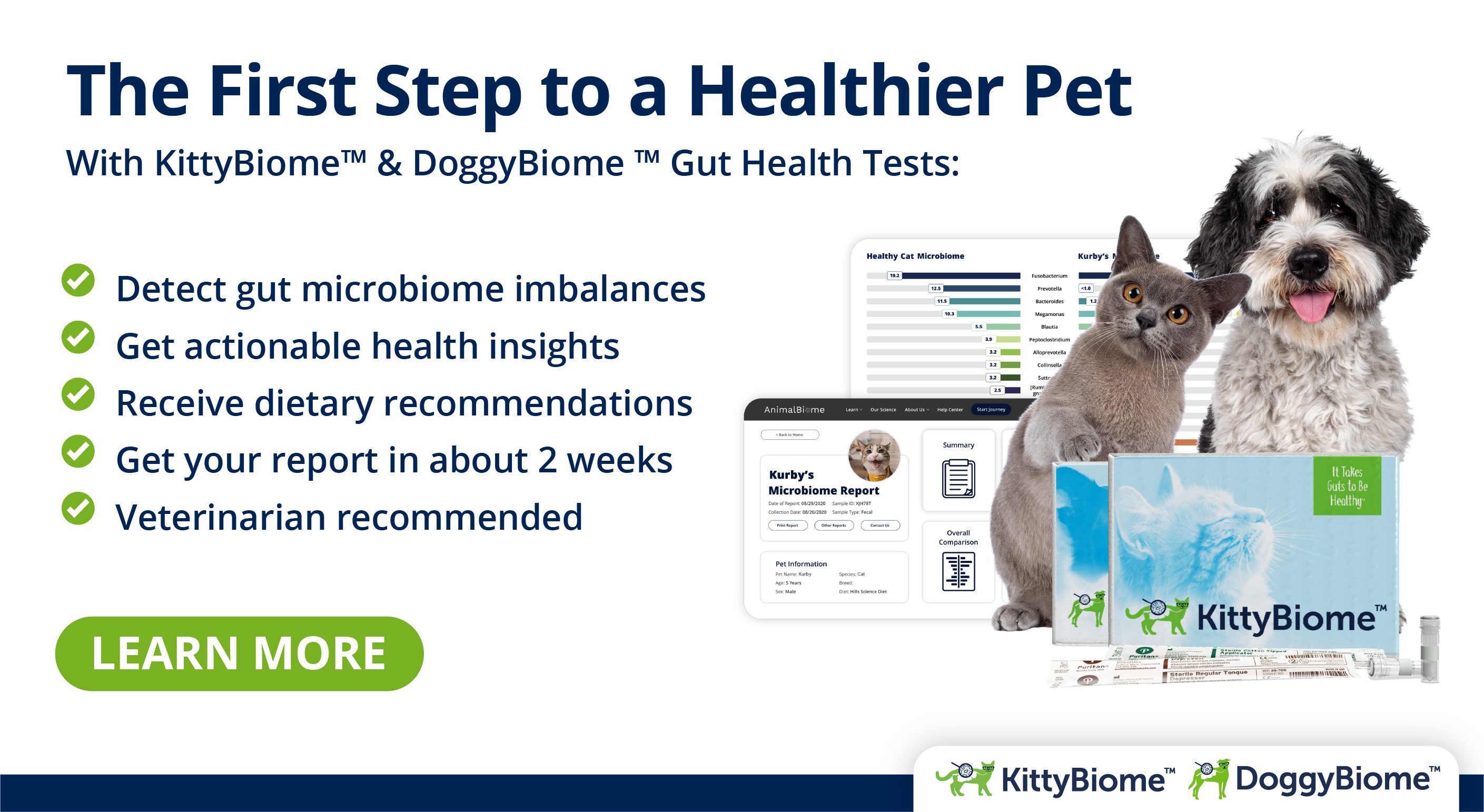Does your cat or dog have Inflammatory Bowel Disease?

Gaining a better understanding of Inflammatory Bowel Disease will help you give your dog or cat the best treatment possible!
Inflammatory Bowel Disease (IBD) is a common disorder in cats and dogs in which the lining of the gastrointestinal tract becomes chronically inflamed. IBD is often confused with Irritable Bowel Syndrome or short term flare-ups of diarrhea that aren’t associated with chronic inflammation. Older animals and certain breeds are unfortunately more susceptible to chronic conditions like IBD.
IBD causes serious problems for pets because an inflamed gut can’t properly digest food and absorb nutrients. Cats and dogs with IBD have frequent occurrences of these common symptoms:
- Vomiting
- Diarrhea
- Loss of appetite
- Bloating
- Blood or mucus in stool
- Flatulence
- Increased lip licking / drooling (dogs)
- Straining in litter box (cats)
How is IBD diagnosed?
Your veterinarian will run several tests on your cat or dog to rule out inflammation caused by parasites, cancer, any issues with the liver, pancreas, thyroid, or kidneys, and other conditions. If your pet’s test results come back negative, then your veterinarian may offer a provisional diagnosis of IBD. They may also perform biopsies of the stomach and intestinal lining to make an official diagnosis.
What causes IBD?
There are many contributors to chronic gut inflammation, and often it’s the combination of several factors. Here are some of the common causes:
- Diet is the most common cause of IBD. Some ingredients can trigger food allergies or sensitivities, which may develop as your pet’s dietary needs change with age.
- Some breeds are more susceptible to IBD than others. Animals with an overly reactive immune system caused by their individual genetics are also likely to have gut inflammation.
- Environment. Your pet’s exposure to chemicals, inhalant allergies, other animals, and stress are known to contribute to IBD.
- Imbalanced Gut Bacteria. Many of the bacteria that line your pet’s intestines play important anti-inflammatory roles in their gut health. Your pet may experience inflammation if they are missing important beneficial bacteria. Antibiotics are known to throw the balance of gut bacteria off.
IBD management and treatment
The primary goal of all treatments for IBD is to reduce gut inflammation. Medications can control symptoms, but IBD treatment usually takes several months of addressing the source of inflammation.
Your veterinarian may suggest a food trial of a hypoallergenic prescription diet, as more than 50% of animals with IBD have improved symptoms with dietary changes alone. This process rules out gut inflammation due to food sensitivities. Animals with chronic diarrhea may also benefit from added fiber to the diet.
Chronic gut inflammation prevents the absorption of cobalamin (vitamin B12). Your veterinarian may test for a B12 deficiency to determine if your pet needs B12 supplements or injections.
Microbiome testing is a great tool to determine if there is a bacterial imbalance in your pet’s gut. Microbiome reports provide specific recommendations for dietary changes and/or prebiotic and probiotic supplementation to reduce inflammation. And fecal microbiota transplants, which can be performed in a vet office or given as an oral capsule, can significantly improve IBD symptoms in cats and dogs. To learn more, visit animalbiome.com.





